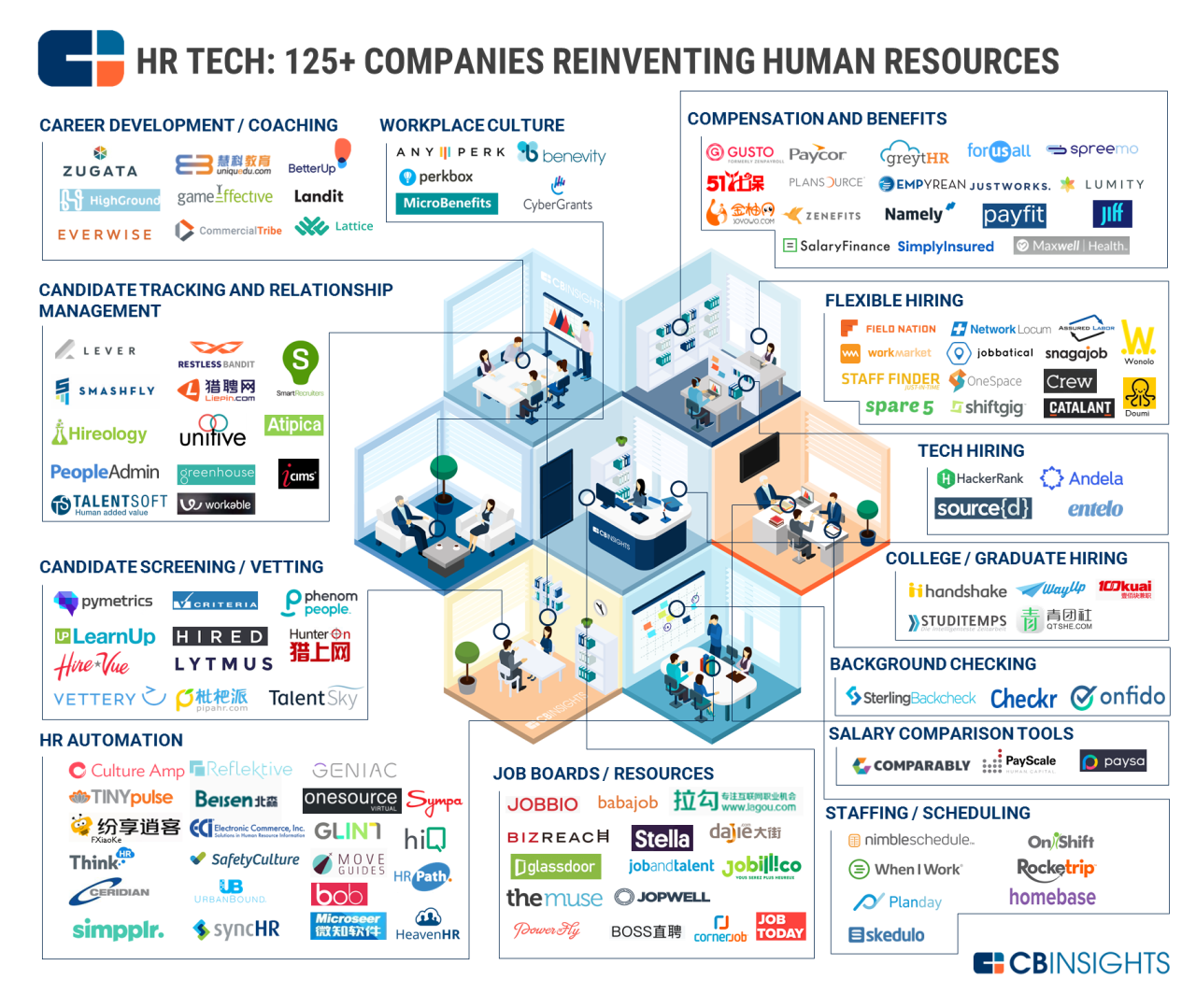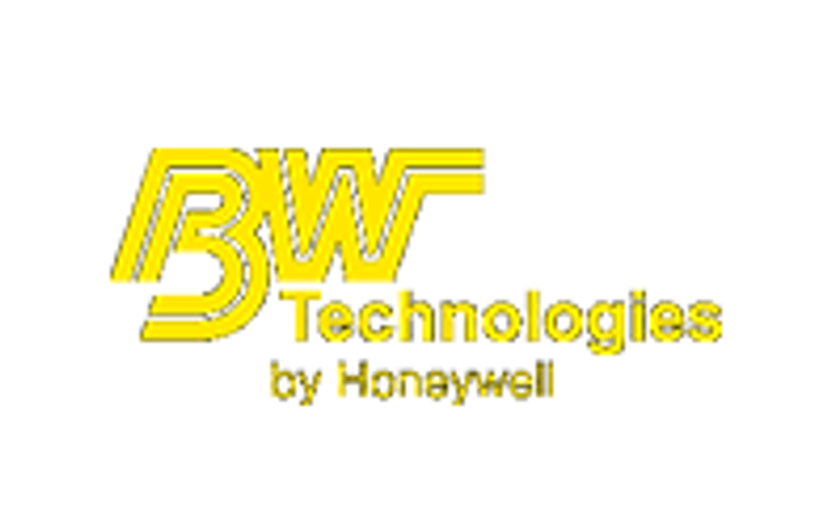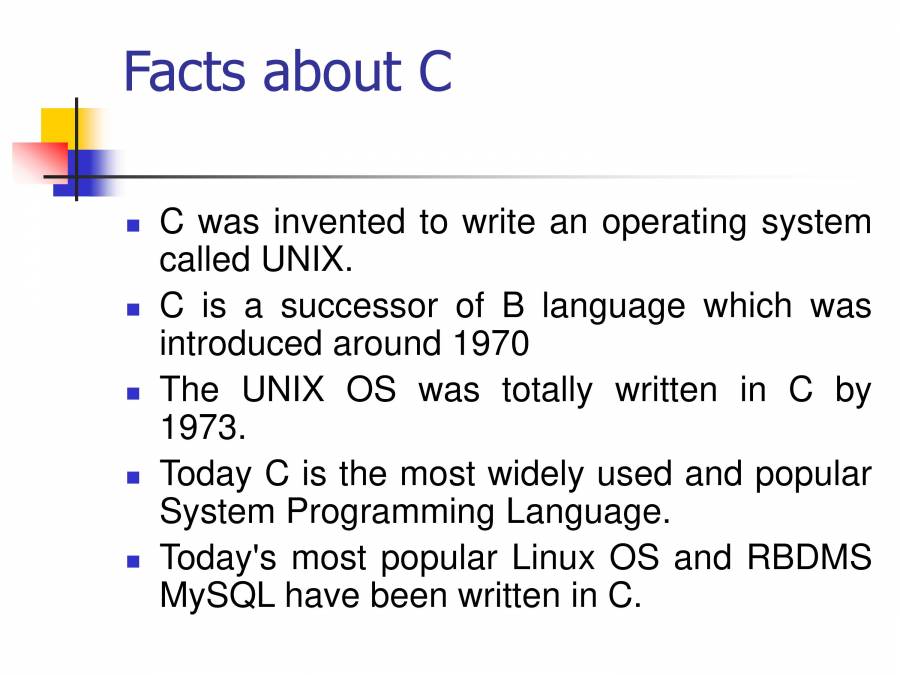Top HR Technology Companies: Shaping the Future of Work
Top HR technology companies are revolutionizing the way organizations manage their workforce. From talent acquisition to performance management, these companies are leveraging cutting-edge technologies to streamline processes, improve employee engagement, […]
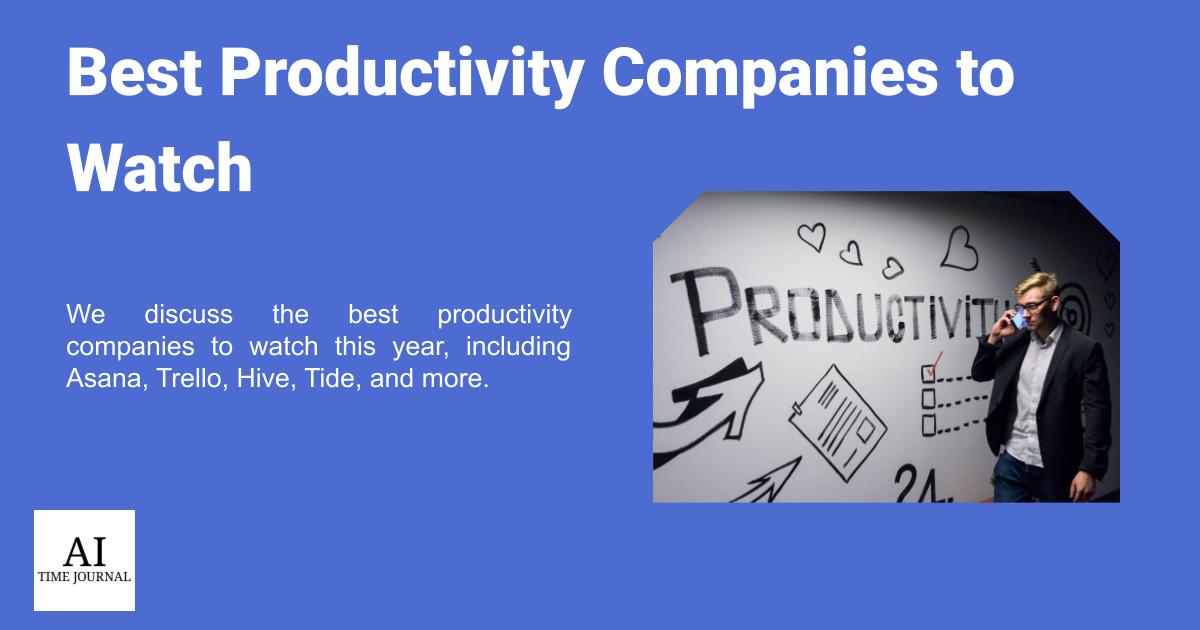
Top HR technology companies are revolutionizing the way organizations manage their workforce. From talent acquisition to performance management, these companies are leveraging cutting-edge technologies to streamline processes, improve employee engagement, and enhance productivity. This dynamic landscape is characterized by rapid innovation, with new solutions emerging regularly to address evolving HR challenges.
This article delves into the world of top HR technology companies, exploring their diverse offerings, innovative approaches, and the impact they are having on the future of work. We’ll examine key trends, analyze the unique value propositions of leading companies, and discuss the importance of seamless integration in creating a robust HR technology ecosystem.
Defining the Landscape
The HR technology market is rapidly evolving, driven by a confluence of factors including the rise of digital transformation, the need for greater workforce agility, and the increasing demand for data-driven decision-making. This dynamic landscape presents both opportunities and challenges for HR professionals.
Key Trends Shaping the Industry
The HR technology market is experiencing a period of significant growth and transformation, driven by several key trends. These trends are shaping the way HR departments operate and interact with their employees.
- The Rise of AI and Machine Learning: AI and machine learning are increasingly being used in HR to automate tasks, improve decision-making, and enhance the employee experience. For example, AI-powered chatbots can be used to answer employee questions, while machine learning algorithms can be used to predict employee turnover.
- Focus on Employee Experience: Organizations are prioritizing the employee experience, recognizing that engaged and satisfied employees are more productive and loyal. This has led to the adoption of HR technologies that enhance the employee journey, from onboarding to performance management and learning and development.
- The Importance of Data Analytics: Data analytics is becoming increasingly crucial for HR departments to make informed decisions. HR technologies are being used to collect and analyze data on employee performance, engagement, and other key metrics, providing insights that can help organizations optimize their workforce and improve business outcomes.
- Cloud-Based Solutions: Cloud-based HR solutions are becoming increasingly popular, offering scalability, flexibility, and cost-effectiveness. These solutions allow organizations to access HR applications and data from anywhere, anytime, without the need for expensive hardware or software infrastructure.
- Integration and Interoperability: Organizations are increasingly looking for HR technologies that can integrate with other systems, such as payroll, benefits, and learning management systems. This ensures data consistency and reduces the need for manual data entry.
Emerging Technologies Impacting HR
Emerging technologies are having a profound impact on the HR technology landscape, opening up new possibilities for HR professionals.
- The Metaverse: The metaverse is a virtual world where people can interact with each other and with digital objects. It has the potential to revolutionize the way we work and learn, offering new opportunities for collaboration, training, and employee engagement.
- Blockchain: Blockchain technology can be used to improve the security and transparency of HR processes, such as employee onboarding and payroll. It can also be used to create verifiable digital credentials that can be used to track employee skills and experience.
- Augmented Reality (AR) and Virtual Reality (VR): AR and VR technologies are being used to create immersive training experiences and to enhance the employee experience. For example, AR can be used to provide employees with real-time instructions on how to perform a task, while VR can be used to create simulations that allow employees to practice skills in a safe and controlled environment.
Top Companies by Category

The HR technology landscape is diverse, with companies specializing in various aspects of HR management. Understanding the key players and their offerings within each category is crucial for organizations seeking the right solutions to address their specific needs. This section explores prominent HR technology companies categorized by their core areas of expertise.
Talent Acquisition
Talent acquisition solutions focus on streamlining the hiring process, from sourcing candidates to onboarding new employees. These platforms aim to enhance efficiency, reduce time-to-hire, and improve the quality of hires.
| Company | Key Solutions | Target Audience | Notable Features |
|---|---|---|---|
| Greenhouse | Applicant Tracking System (ATS), Candidate Relationship Management (CRM), Interview Scheduling | Small to large businesses across various industries | User-friendly interface, robust analytics, integration with other HR tools |
| Workday | ATS, CRM, Onboarding, Talent Management | Large enterprises | Comprehensive suite of HR solutions, AI-powered features, global scalability |
| ZipRecruiter | Job Posting, Candidate Sourcing, Application Tracking | Small to medium businesses | Wide reach across multiple job boards, affordable pricing plans, easy-to-use platform |
| Lever | ATS, CRM, Interview Scheduling, Diversity & Inclusion Tools | Growing companies | Focus on diversity and inclusion, seamless integration with other tools, strong customer support |
Learning & Development
Learning and development platforms provide tools and resources to support employee training, skill development, and knowledge sharing. These solutions aim to enhance employee performance, foster a culture of learning, and drive organizational growth.
| Company | Key Solutions | Target Audience | Notable Features |
|---|---|---|---|
| LinkedIn Learning | Online Courses, Skill Assessments, Learning Paths | Individuals and organizations | Vast library of courses, industry-relevant content, personalized learning recommendations |
| Degreed | Learning Experience Platform (LXP), Skill Management, Personalized Learning | Large enterprises | Integrates with various learning platforms, tracks employee skills, supports career development |
| Udemy | Online Courses, Instructor-Led Training, Certification Programs | Individuals and organizations | Wide range of courses, flexible learning options, affordable pricing |
| Coursera | Online Courses, Degree Programs, Specialization Tracks | Individuals and organizations | Partnerships with top universities, high-quality content, flexible learning formats |
Performance Management
Performance management solutions enable organizations to set goals, track progress, provide feedback, and conduct performance reviews. These platforms aim to align employee performance with organizational objectives, foster growth, and improve overall productivity.
| Company | Key Solutions | Target Audience | Notable Features |
|---|---|---|---|
| Workday | Goal Setting, Performance Reviews, Feedback Management | Large enterprises | Integrated with other HR modules, real-time performance insights, mobile accessibility |
| BambooHR | Performance Reviews, Goal Tracking, Employee Recognition | Small to medium businesses | User-friendly interface, customizable performance templates, affordable pricing |
| 15Five | Goal Setting, Performance Reviews, Employee Engagement Surveys | Growing companies | Focus on employee engagement, regular check-ins, integration with other tools |
| Lattice | Performance Management, Feedback, Development Planning | All sizes of businesses | Real-time feedback, continuous performance management, strong focus on employee development |
Employee Engagement
Employee engagement solutions aim to boost employee morale, improve communication, and foster a positive work environment. These platforms provide tools for surveys, feedback collection, recognition programs, and communication channels.
| Company | Key Solutions | Target Audience | Notable Features |
|---|---|---|---|
| Culture Amp | Employee Engagement Surveys, Feedback Analysis, Action Planning | All sizes of businesses | Data-driven insights, actionable recommendations, integration with other HR tools |
| Glint | Employee Engagement Surveys, Feedback Analysis, Performance Management | Large enterprises | Predictive analytics, personalized recommendations, comprehensive reporting |
| Officevibe | Employee Engagement Surveys, Pulse Surveys, Feedback Collection | Small to medium businesses | Easy-to-use platform, actionable insights, affordable pricing |
| SurveyMonkey | Employee Engagement Surveys, Feedback Collection, Data Analysis | All sizes of businesses | Wide range of survey templates, customizable questions, robust data analysis tools |
Payroll & Benefits
Payroll and benefits solutions automate payroll processing, manage employee benefits, and ensure compliance with labor laws. These platforms streamline administrative tasks, reduce errors, and provide employees with access to their payroll and benefits information.
| Company | Key Solutions | Target Audience | Notable Features |
|---|---|---|---|
| ADP | Payroll Processing, Benefits Administration, HR Management | All sizes of businesses | Comprehensive suite of HR solutions, global reach, robust security features |
| Paychex | Payroll Processing, Benefits Administration, HR Management | Small to medium businesses | User-friendly platform, affordable pricing, excellent customer support |
| Gusto | Payroll Processing, Benefits Administration, Onboarding | Small to medium businesses | Modern platform, seamless integration with other tools, focus on employee experience |
| Zenefits | Payroll Processing, Benefits Administration, HR Management | Small to medium businesses | All-in-one HR platform, affordable pricing, easy-to-use interface |
HR Analytics
HR analytics platforms provide data-driven insights into HR processes, employee performance, and organizational effectiveness. These solutions help organizations identify trends, make data-informed decisions, and optimize their HR strategies.
| Company | Key Solutions | Target Audience | Notable Features |
|---|---|---|---|
| Visier | HR Analytics, Workforce Planning, Talent Management | Large enterprises | Advanced analytics capabilities, predictive modeling, customizable dashboards |
| Workday | HR Analytics, Workforce Planning, Talent Management | Large enterprises | Integrated with other HR modules, real-time data insights, mobile accessibility |
| PeopleFluent | HR Analytics, Talent Management, Learning & Development | Large enterprises | Comprehensive reporting capabilities, customizable dashboards, integration with other HR tools |
| Sabre | HR Analytics, Workforce Planning, Talent Acquisition | Large enterprises | Focus on workforce planning, predictive analytics, integration with other HR tools |
Innovation and Disruption

The HR technology landscape is constantly evolving, with new innovations emerging regularly. Companies are pushing the boundaries of what’s possible, developing cutting-edge solutions to address the challenges of attracting, engaging, and retaining talent in the modern workplace. This section explores the key players driving this innovation, their approaches to solving specific HR challenges, and the impact of these technologies on the future of work.
Pioneering Companies in HR Technology
The emergence of innovative HR technology solutions is driven by a diverse range of companies, each with a unique approach to tackling specific challenges within the HR domain. These companies are pushing the boundaries of traditional HR practices, leveraging technology to streamline processes, enhance employee experience, and foster a more data-driven approach to talent management.
- Workday: A leading provider of cloud-based enterprise resource planning (ERP) and human capital management (HCM) solutions. Workday’s platform is known for its user-friendly interface, comprehensive functionality, and focus on data analytics. The company’s innovative approach to talent management includes features like talent marketplace, skills-based learning, and personalized career paths, all aimed at empowering employees and enhancing their development.
- BambooHR: A popular choice for small and medium-sized businesses (SMBs), BambooHR offers a user-friendly and affordable HCM solution. The platform focuses on simplifying HR processes, automating tasks, and providing valuable insights through data analytics. BambooHR’s innovative features include onboarding automation, performance management tools, and employee engagement surveys, designed to streamline HR operations and foster a positive work environment.
- Gusto: A company known for its payroll and benefits administration platform, Gusto is revolutionizing how businesses manage their workforce. Gusto’s platform offers a seamless experience for managing payroll, benefits, and HR tasks, all within a single, user-friendly interface. The company’s focus on automation and integration with other business applications makes it a popular choice for businesses looking to streamline their HR operations and reduce administrative burdens.
- Greenhouse: A leading provider of applicant tracking systems (ATS), Greenhouse focuses on streamlining the recruitment process and improving the candidate experience. The platform offers features like automated screening, candidate relationship management (CRM), and interview scheduling, designed to optimize the hiring process and attract top talent. Greenhouse’s innovative approach to talent acquisition includes features like diversity and inclusion reporting, ensuring that organizations are attracting and hiring a diverse workforce.
Addressing Specific HR Challenges
HR technology companies are tackling a wide range of challenges faced by organizations today, from talent acquisition and employee engagement to performance management and workforce planning. Their innovative solutions are transforming the way HR functions operate, enabling organizations to be more agile, efficient, and data-driven in their approach to managing their workforce.
- Talent Acquisition: Companies like Greenhouse and Lever are addressing the challenges of attracting and retaining top talent by offering innovative recruitment solutions. These platforms leverage AI and data analytics to automate the screening process, improve candidate engagement, and streamline the hiring process. They also focus on creating a positive candidate experience, ensuring that organizations are attracting and retaining the best talent.
- Employee Engagement: Companies like Culture Amp and TINYpulse are tackling the challenge of fostering a positive and engaged workforce. Their platforms offer tools for conducting employee surveys, collecting feedback, and measuring employee satisfaction. They also provide insights into employee sentiment and identify areas for improvement, enabling organizations to create a more engaged and productive work environment.
- Performance Management: Companies like Lattice and Reflektive are transforming the way organizations manage performance. Their platforms offer tools for setting goals, tracking progress, and providing feedback. They also encourage continuous feedback and development, fostering a culture of growth and improvement within the organization.
- Workforce Planning: Companies like Visier and PeopleFluent are addressing the challenges of workforce planning and talent optimization. Their platforms leverage data analytics to provide insights into workforce trends, identify skills gaps, and predict future workforce needs. This enables organizations to make informed decisions about talent acquisition, development, and deployment, ensuring that they have the right people in the right roles at the right time.
Impact on the Future of Work, Top hr technology companies
The advancements in HR technology are having a profound impact on the future of work, shaping how organizations attract, engage, and retain talent in a rapidly changing world. These technologies are driving a shift towards a more agile, data-driven, and employee-centric approach to work.
- Increased Automation: HR technology is automating many routine tasks, freeing up HR professionals to focus on more strategic initiatives. This includes tasks like payroll processing, benefits administration, and employee onboarding, which can be automated through platforms like Gusto and BambooHR. This shift towards automation is creating a more efficient and streamlined HR function, enabling organizations to operate more effectively.
- Data-Driven Decision Making: HR technology is providing organizations with access to a wealth of data about their workforce, enabling them to make more informed decisions about talent management. This includes data on employee engagement, performance, and development, which can be used to identify areas for improvement and optimize workforce performance. The use of data analytics in HR is driving a more strategic and data-driven approach to managing talent.
- Enhanced Employee Experience: HR technology is creating a more personalized and engaging employee experience. This includes tools for communication, collaboration, and learning, which empower employees and make them feel valued and connected. The focus on employee experience is driving a more human-centric approach to work, fostering a sense of purpose and belonging within organizations.
- Shift to a Gig Economy: HR technology is also enabling organizations to tap into the growing gig economy. Platforms like Upwork and Fiverr allow businesses to access a global pool of talent for specific projects or tasks. This shift towards a more flexible and agile workforce is changing the way organizations think about talent acquisition and deployment.
The Future of HR Technology: Top Hr Technology Companies
The HR technology landscape is evolving rapidly, driven by advancements in artificial intelligence (AI), automation, and data analytics. These technologies are transforming the way HR functions operate, leading to more efficient, data-driven, and employee-centric practices.
Impact of Artificial Intelligence
AI is revolutionizing HR by automating tasks, improving decision-making, and personalizing employee experiences.
- AI-powered chatbots are being used for employee onboarding, answering frequently asked questions, and resolving simple HR issues. This frees up HR professionals to focus on more strategic initiatives.
- AI-driven recruitment platforms are using machine learning algorithms to analyze candidate data, identify top talent, and automate the screening process. This helps companies find the best candidates more quickly and efficiently.
- AI-based performance management systems are providing real-time feedback and personalized development plans, enabling employees to track their progress and identify areas for improvement.
Impact of Automation
Automation is streamlining HR processes, reducing manual effort, and increasing efficiency.
- Automated payroll systems are reducing the risk of errors and freeing up HR professionals to focus on other tasks.
- Automated onboarding processes are simplifying the new hire experience and ensuring a smooth transition for employees.
- Automated performance reviews are providing objective and consistent feedback, reducing bias and improving accuracy.
Impact of Data Analytics
Data analytics is providing HR with valuable insights into employee behavior, performance, and engagement.
- Predictive analytics can identify potential employee turnover and recommend proactive measures to retain valuable talent.
- HR dashboards provide real-time data on key metrics, such as employee satisfaction, productivity, and training completion rates.
- Data-driven decision-making allows HR to allocate resources more effectively and tailor programs to meet the specific needs of employees.
Challenges and Opportunities
The rapid evolution of HR technology presents both challenges and opportunities for HR technology companies.
- Staying ahead of the curve: The pace of innovation in HR technology is rapid, requiring companies to constantly invest in research and development to stay competitive.
- Data security and privacy: With the increasing reliance on data, companies must prioritize data security and privacy to protect sensitive employee information.
- Integration with existing systems: HR technology solutions need to seamlessly integrate with existing HR systems to avoid disrupting workflows and creating data silos.
- User adoption and training: Companies need to provide effective training and support to ensure that employees are comfortable using new HR technology solutions.
Final Thoughts
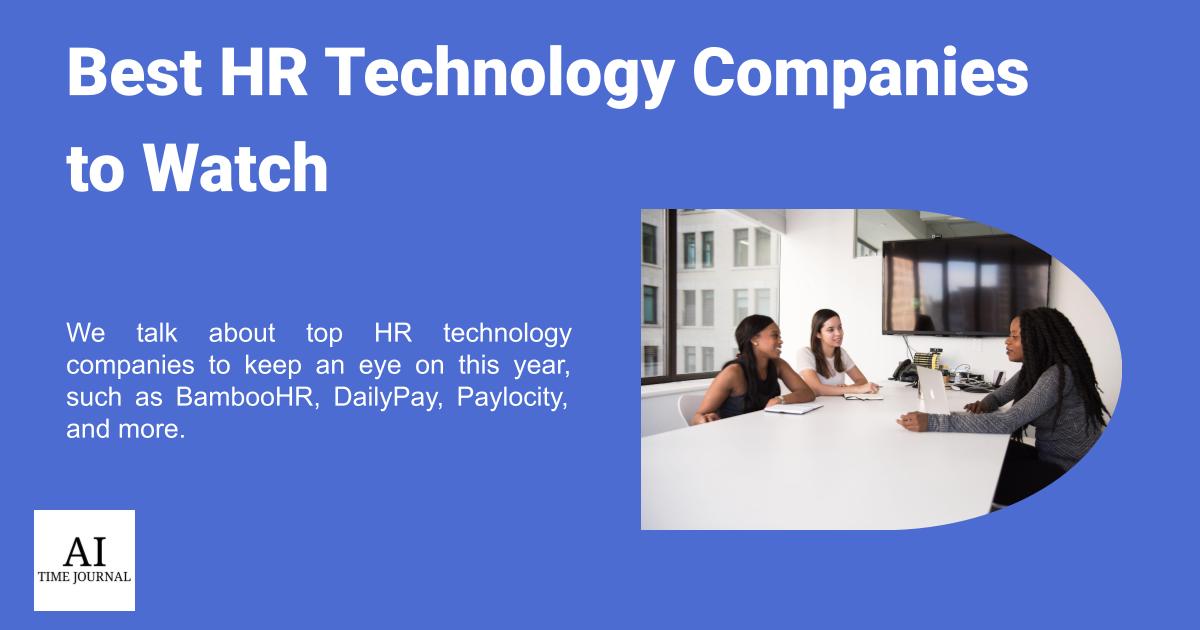
The future of HR technology is bright, fueled by advancements in artificial intelligence, automation, and data analytics. As these technologies continue to evolve, HR technology companies will play a pivotal role in shaping the workforce of tomorrow. By embracing innovation, fostering collaboration, and prioritizing user experience, these companies can empower organizations to navigate the complexities of the modern workplace and achieve their strategic goals.
Top HR technology companies are constantly innovating to improve their offerings, and a crucial aspect of this is ensuring their systems are secure and reliable. This is where information technology audit services come in, providing independent assessments of a company’s IT infrastructure and security practices.
By ensuring their technology is secure and compliant, HR tech companies can focus on delivering the best possible solutions to their clients.

